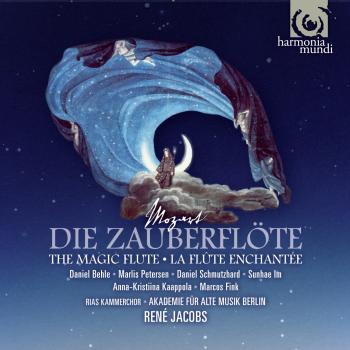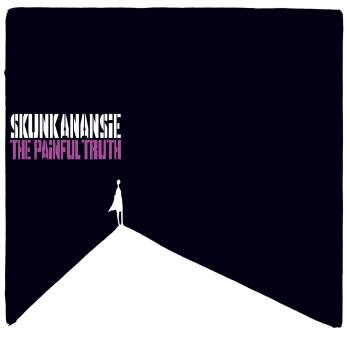
Soul Finger The Bar-Kays
Album Info
Album Veröffentlichung:
1976
HRA-Veröffentlichung:
23.05.2013
Das Album enthält Albumcover
Entschuldigen Sie bitte!
Sehr geehrter HIGHRESAUDIO Besucher,
leider kann das Album zurzeit aufgrund von Länder- und Lizenzbeschränkungen nicht gekauft werden oder uns liegt der offizielle Veröffentlichungstermin für Ihr Land noch nicht vor. Wir aktualisieren unsere Veröffentlichungstermine ein- bis zweimal die Woche. Bitte schauen Sie ab und zu mal wieder rein.
Wir empfehlen Ihnen das Album auf Ihre Merkliste zu setzen.
Wir bedanken uns für Ihr Verständnis und Ihre Geduld.
Ihr, HIGHRESAUDIO
- 1 Soul Finger 02:24
- 2 Knucklehead 02:22
- 3 With A Child's Heart 02:59
- 4 Bar-Kays Boogaloo 02:18
- 5 Theme From Hell's Angels 02:48
- 6 You Can't Sit Down 03:08
- 7 House Shoes 02:48
- 8 Pearl High 02:36
- 9 I Want Someone 03:11
- 10 Hole In The Wall 02:35
- 11 Don't Do That 02:48
Info zu Soul Finger
On the Bar-Kays' first album, it's obvious why they were constantly lauded by legends such as Booker T. Jones and Steve Cropper as key soul music innovators. SOUL FINGER, the only release by the original lineup before the tragic December 1967 plane crash that killed Otis Redding and four of the band (they reformed in 1968), contains 11 instrumental tracks, each of them catchy, danceable and all around attention-grabbing.
SOUL FINGER is marked by Phalon Jones and Ben Cauley's infectious horn riffs and Jimmy King's sparse yet sensitive guitar work. Add Ronnie Caldwell's bluesy organ and Carl Cunningham's rock steady grooves, and you've got a hypnotic recipe for down-home Memphis soul. Songs such as 'You Can't Sit Down' and 'Bar-Kay's Boogaloo' are ideal party tunes. Energetic and life affirming, this music is simply contagious.
Originally released in 1967, Soul Finger was the Bar-Kays' first album, and it's obvious why they were constantly lauded by legends such as Booker T. Jones and Steve Cropper as key soul music innovators. Soul Finger was the only release by the original lineup before the tragic December 1967 plane crash that killed Otis Redding and four of the band (they reformed in 1968). The album contains 11 instrumental tracks, each of them catchy, danceable and all around attention-grabbing. Soul Finger is marked by Phalon Jones and Ben Cauley's infectious horn riffs and Jimmy King's sparse yet sensitive guitar work. Add Ronnie Caldwell's bluesy organ and Carl Cunningham's rock steady grooves, and you've got a hypnotic recipe for the down-home Memphis soul. Songs such as 'You Can't Sit Down' and 'Bar-Kay's Boogaloo' are ideal party tunes. Energetic and life affirming, this music is simply contagious.
Produced by Booker T.
Digitally remastered
The Bar-Kays
Despite unimaginable obstacles, the Bar-Kays have endured as one of the longest-running funk and soul groups ever, while their talents as a backing band can be heard on some of the most popular albums of the ’60s and ’70s. In their earliest incarnation—more than 55 years ago—the band proved the power of determination, working tirelessly to earn their place at Stax and perform alongside one of the label’s biggest stars. But when tragedy struck, the remaining members of the group were forced to channel that passion to reimagine what—and who—the Bar-Kays could be.
The Bar-Kays were formed in the mid-’60s by Memphis teenagers Ben Cauley (trumpet), James Alexander (bass), Jimmie King (guitar), Ronnie Caldwell (organ), Phalon Jones (saxophone), and Carl Cunningham (drums). Standing out as one of the region’s few integrated groups, the instrumental sextet developed their skills at local clubs, while Cauley gained foundational experience in the studio at Stax, recording horns for artists like Carla Thomas and Rufus Thomas. But the high schoolers yearned to be a permanent fixture at the local label and, despite several failed auditions, persisted in their quest.
Finally, in 1967, the Bar-Kays impressed Stax’s team with their playful and funky original tune, “Soul Finger.” The song not only marked the group’s debut single but also their first big hit—landing in the Billboard Hot 100’s Top 20 and peaking at No.3 on the R&B chart that spring.
The Bar-Kays also made an impression on Stax’s marquee star, Otis Redding, who hired them as his touring band. While the young musicians’ parents were concerned about the group finishing school, Redding made special arrangements so that they could continue their studies. “Otis loved those kids so much,” Redding’s widow, Zelma, told Robert Gordon in Respect Yourself: Stax Records and the Soul Explosion. “One of the reasons for getting a new, bigger plane was so the Bar-Kays could tour with him and he could get them home on Sunday night or Monday morning so they could go to school.”
With their debut album, Soul Finger, recorded and primed for a July release, the Bar-Kays set out on tour, enjoying the rarified excitement of playing alongside one of the country’s most popular performers. Then, on December 10, 1967, the unthinkable happened. A plane carrying most of the band members, including a 26-year-old Redding, crashed, killing seven of the eight passengers. Ben Cauley was the sole survivor. James Alexander had not been on the plane.
Following funerals for their friends and colleagues, 20-year-old Cauley and 17-year-old Alexander were left to pick up the pieces. Finding solace in music, the duo chose to channel their devastation and rebuild the band, adding organist Ron Gorden, saxophonist Harvey Henderson, and guitarist Michael Toles. This time, they also enlisted a vocalist, Larry Dodson, as well as two drummers: Roy Cunningham (brother of the late bandmember Carl) and Willie Hall. By the end of the ’60s, the reformed Bar-Kays had recorded a new album (1969’s Gotta Groove) and were backing some of Stax’s biggest acts, including Isaac Hayes. Under Hayes’ wing, the Bar-Kays appeared on such legendary albums as Hot Buttered Soul (1969), Black Moses (1971), and the GRAMMY® and Academy Award-winning soundtrack to Shaft (1971). (STAX Records)
Dieses Album enthält kein Booklet









